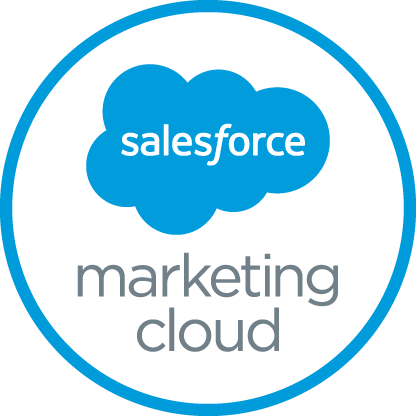What is Brand Manager or Brand Management in 2023?
Brand management is the strategic process of creating, developing, and maintaining a positive perception of a brand in the minds of consumers and stakeholders.
It involves activities such as defining brand identity, crafting brand strategy, communicating brand messages, ensuring consistent brand experience, monitoring brand performance, and protecting the brand’s reputation. Effective brand management is crucial for building customer loyalty, differentiation in the market, and long-term business success.
Brand management is a crucial function within the field of marketing. It involves managing a brand’s reputation, perception, and value in order to build brand awareness, equity, and loyalty. At the heart of brand management is the role of a brand manager. But what exactly does a brand manager do? In this comprehensive guide, we will explore the key skills and responsibilities of a brand manager, as well as the tools they use to effectively manage and maintain a brand.
Commercial Sense
Commercial sense refers to the ability to make sound business decisions and judgments that are driven by financial considerations and an understanding of the market and industry dynamics. It involves evaluating opportunities, risks, and potential returns on investment to determine the viability and profitability of a business venture or decision.
Having commercial sense means being able to assess the market demand for products or services, analyze competition, identify target customers, and understand their needs and preferences. It requires the ability to conduct market research, analyze data, and interpret trends to make informed decisions that align with the goals and objectives of a business.
In addition to financial acumen, commercial sense also encompasses broader business skills such as strategic thinking, negotiation, problem-solving, and risk management. It involves considering factors like pricing, marketing, supply chain, distribution channels, and customer acquisition and retention strategies.
Developing commercial sense is essential for entrepreneurs, business leaders, and professionals across various industries. It helps them identify profitable opportunities, allocate resources effectively, and make informed decisions that contribute to the growth and success of a business.
Creative Branding Skills
Creative branding skills refer to the ability to develop and implement innovative and effective strategies to establish and promote a brand in a memorable and distinctive way. It involves combining artistic and strategic thinking to create a strong brand identity and communicate its values, personality, and unique selling proposition to the target audience.
Table of Contents
Introduction to Brand Management
Brand management is the process of managing and maintaining a brand’s reputation, perception, and value. It involves strategically building and nurturing a brand’s image in order to increase its perceived value over time. Effective brand management can result in higher brand equity, loyal customers, and increased market share.
The Role of a Brand Manager
A brand manager plays a crucial role in the success of a brand. They are responsible for developing and implementing brand strategies, ensuring brand consistency, and driving brand awareness and engagement. Let’s take a closer look at the key skills and responsibilities of a brand manager.
Key Skills of a Brand Management
Certain key skills are essential to excel in the role of Brand Management. Here are some of the skills that a brand manager should possess:
- Creativity: Brand managers need to think creatively to develop innovative brand strategies and marketing campaigns that resonate with the target audience.
- Strategic Thinking: A brand manager should have strong strategic thinking abilities to develop long-term brand strategies that align with the company’s overall vision and goals.
- Communication: Effective communication skills are crucial for brand managers to convey brand messages, collaborate with cross-functional teams, and build relationships with stakeholders.
- Analytical Skills: Brand managers need to analyze market trends, consumer behavior, and performance metrics to make data-driven decisions and continuously improve brand strategies.
- Leadership: Brand managers often lead cross-functional teams and external partners, so strong leadership skills are essential for driving collaboration and achieving brand objectives.
As a digital Brand Management, you should possess several important skills to effectively manage and promote a brand in the digital realm. Here are some of the most important skills for a digital brand manager:
- social media marketing for brand awareness: Social media marketing is an effective strategy for creating brand awareness and reaching a wide audience.
- search engine optimization for the organic audience: Search Engine Optimization (SEO) is the practice of optimizing your website and content to improve its visibility and organic (non-paid) search engine rankings.
- Data Analysis: Data analysis is a crucial aspect of brand management as it provides insights into the performance of your brand, audience behavior, and market trends.
- Content Creation: Content creation is crucial to any brand’s marketing strategy. It involves developing and sharing valuable, relevant, and engaging content to attract and engage your target audience
- CRM: CRM stands for Customer Relationship Management. It is a strategy and technology system businesses use to manage customer interactions and relationships. A CRM system enables companies to store, organize, and analyze customer data, track customer interactions, and improve customer service and sales processes.
- Communication Skills: Communication skills are vital in various aspects of life, including personal relationships, professional environments, and social interactions. Developing effective communication skills can help you convey your thoughts and ideas clearly, listen actively, build strong relationships, and resolve conflicts.
- Basic Design Skills like photos and videos Design: Basic design skills are valuable for creating visually appealing and engaging content, including photos and videos. While professional designers possess extensive training and experience,
- Google search console: Google Search Console is a free web service provided by Google that allows website owners and administrators to monitor and optimize the performance of their website in Google search results. It provides valuable insights and tools to help improve your website’s visibility and organic search traffic.
- Google Analytics: Google Analytics is a powerful web analytics tool provided by Google that helps you track and analyze website traffic and user behavior. It provides valuable insights into your website’s performance, audience demographics, user interactions, and marketing effectiveness.
- Brand presentation for business events: When preparing a brand presentation for business events, it’s important to create a compelling and memorable experience that effectively communicates your brand’s message and values.
- Paid ads for lead generation. Like Google Facebook: Paid advertising can be an effective strategy for lead generation. By targeting specific audiences and leveraging various advertising platforms, you can attract potential customers and encourage them to take action.
- Basic Website Design Skills: Having basic website design skills can be valuable for creating visually appealing and user-friendly websites.
- Pay-Per-Click Advertising (PPC): Managing paid advertising campaigns on platforms like Google Ads or social media to drive targeted traffic and generate leads.
- Content Marketing: Creating valuable and engaging content, such as blog posts, articles, videos, or infographics, to attract and retain customers.
- Email Marketing: Building and managing email lists, creating effective email campaigns, and nurturing leads through personalized and targeted messages.
- Conversion Rate Optimization (CRO): Optimizing website elements and user experience to increase the percentage of visitors who take the desired action, such as making a purchase or filling out a form.
- Marketing Automation: Implementing automated processes and tools to streamline marketing activities, such as lead nurturing, email campaigns, and social media scheduling.
- Copywriting: Writing compelling and persuasive copy for various marketing materials, including website content, ads, landing pages, and email campaigns.
- Digital Advertising: Understanding and managing different types of digital advertising, including display ads, video ads, native ads, and remarketing campaigns.
- Mobile Marketing: Develop strategies to reach and engage mobile users through mobile-optimized websites, mobile apps, SMS marketing, or location-based advertising.
- Influencer Marketing: Collaborating with influencers or industry experts to promote products or services and leverage their reach and influence.
- Video Marketing: Creating and promoting video content on platforms like YouTube or social media to increase brand awareness, engage users, and drive conversions.
- A/B Testing: Conduct experiments to compare different versions of web pages, emails, ads, or other marketing elements to optimize performance and improve conversion rates.
- Understanding Marketing Technology: Familiarity with various marketing tools and platforms, such as marketing automation software, CRM systems, social media management tools, or content management systems.
The responsibilities of Brand Management can vary depending on the organization and industry. However, some common responsibilities include:
- Developing Brand Strategy: A brand manager is responsible for developing a comprehensive brand strategy that aligns with the company’s goals and target market.
- Brand Positioning: Brand managers identify the unique value proposition of the brand and position it effectively in the market to differentiate it from competitors.
- Brand Identity and Messaging: They oversee the development of brand identity elements such as logos, color palettes, and taglines, ensuring consistency across all brand touchpoints.
- Marketing Campaigns: Brand managers develop and execute marketing campaigns to create brand awareness, engage customers, and drive brand loyalty.
- Monitoring and Analysis: They monitor market trends, competitor activities, and consumer feedback to identify opportunities and make informed decisions for brand improvement.
- Collaboration and Stakeholder Management: Brand managers collaborate with internal teams, external partners, and stakeholders to ensure consistent brand messaging and alignment.
Tools for Brand Management
Brand Management rely on various tools to streamline and enhance their brand management efforts. Let’s explore some of the essential tools that brand managers use.
Brand Management Software
Brand management software is a valuable tool for brand managers as it provides a centralized platform for managing brand assets, ensuring brand consistency, and streamlining collaboration. Some key features of brand management software include:
- Brand Guidelines: Brand management software allows brand managers to create and maintain brand guidelines, ensuring that all stakeholders have access to the latest brand assets and guidelines.
- Asset Organization: Brand managers can organize and store brand assets such as logos, images, and videos in a centralized repository, making it easy to manage and share assets with internal and external teams.
- Collaboration and Approval Workflows: Brand management software facilitates collaboration and streamlines approval workflows, allowing brand managers to efficiently collaborate with cross-functional teams and external partners.
- Brand Performance Insights: These tools provide valuable insights into brand performance metrics, allowing brand managers to measure the effectiveness of their brand strategies and make data-driven decisions.
- Resource Management: Brand management software helps brand managers manage resources such as budgets, timelines, and project workflows, ensuring efficient brand management operations.
Other Essential Tools
In addition to brand management software, brand managers also use other essential tools to support their brand management efforts. These tools may include:
- Social Media Management Tools: Brand managers use social media management tools to schedule and monitor social media posts, engage with followers, and analyze social media performance.
- Analytics Tools: Brand managers rely on analytics tools to track and analyze key performance indicators (KPIs) such as website traffic, conversion rates, and customer engagement metrics.
- Project Management Tools: Project management tools help brand managers plan, organize, and track brand-related projects, ensuring that tasks are completed on time and within budget.
- Market Research Tools: Brand managers use market research tools to gather insights into consumer behavior, market trends, and competitor activities, helping them make informed decisions for brand improvement.
Conclusion
Brand management is a critical function that requires the expertise of a skilled brand manager. By possessing key skills such as creativity, strategic thinking, and communication, brand managers can effectively develop and implement brand strategies, drive brand awareness, and ensure brand consistency. With the help of brand management software and other essential tools, brand managers can streamline their brand management efforts and successfully nurture and grow their brands in an ever-changing market.






Helpful information. Is there any training videos for BM.
Is there any training BM
Very Helpful information on brand manager